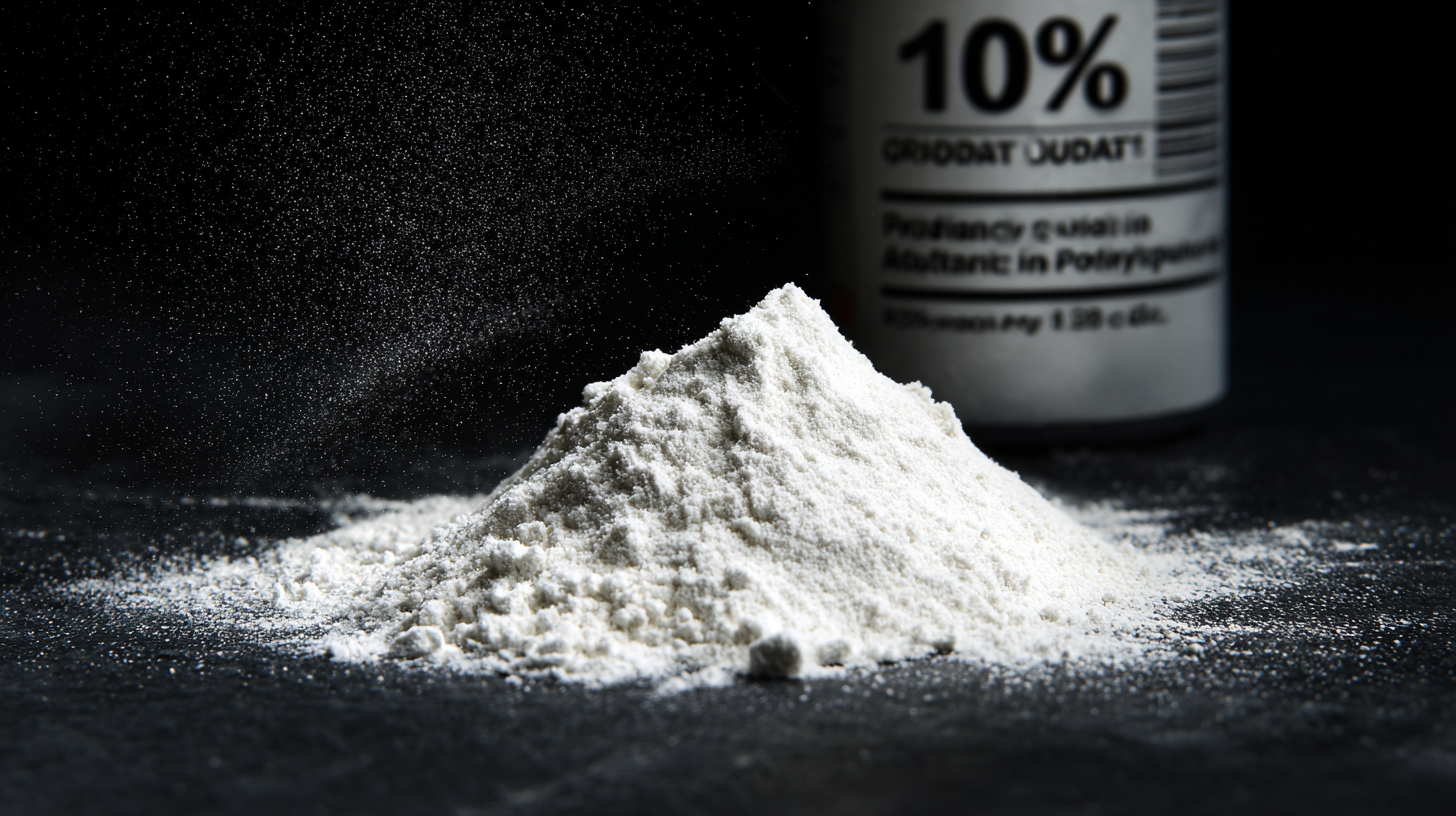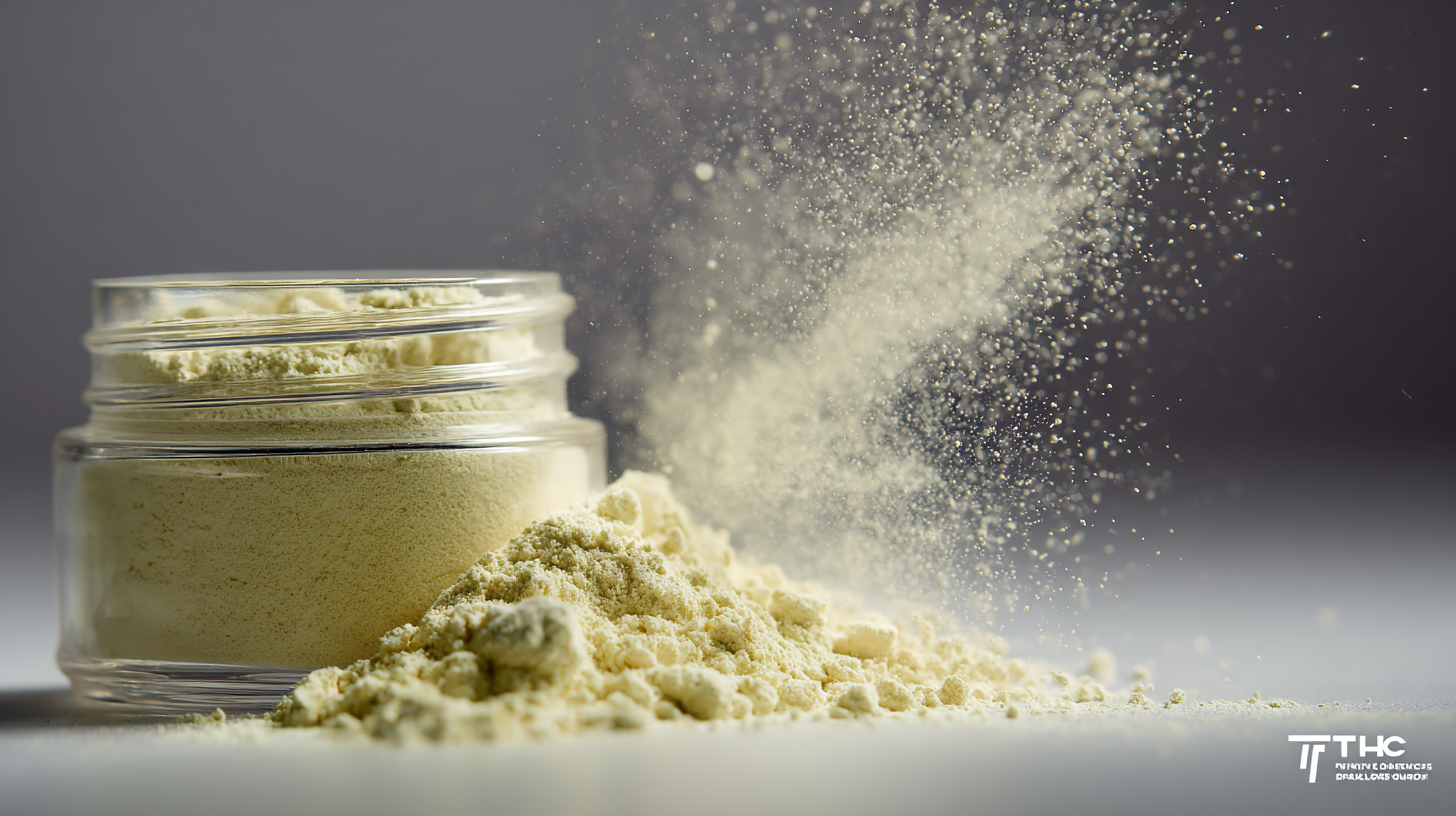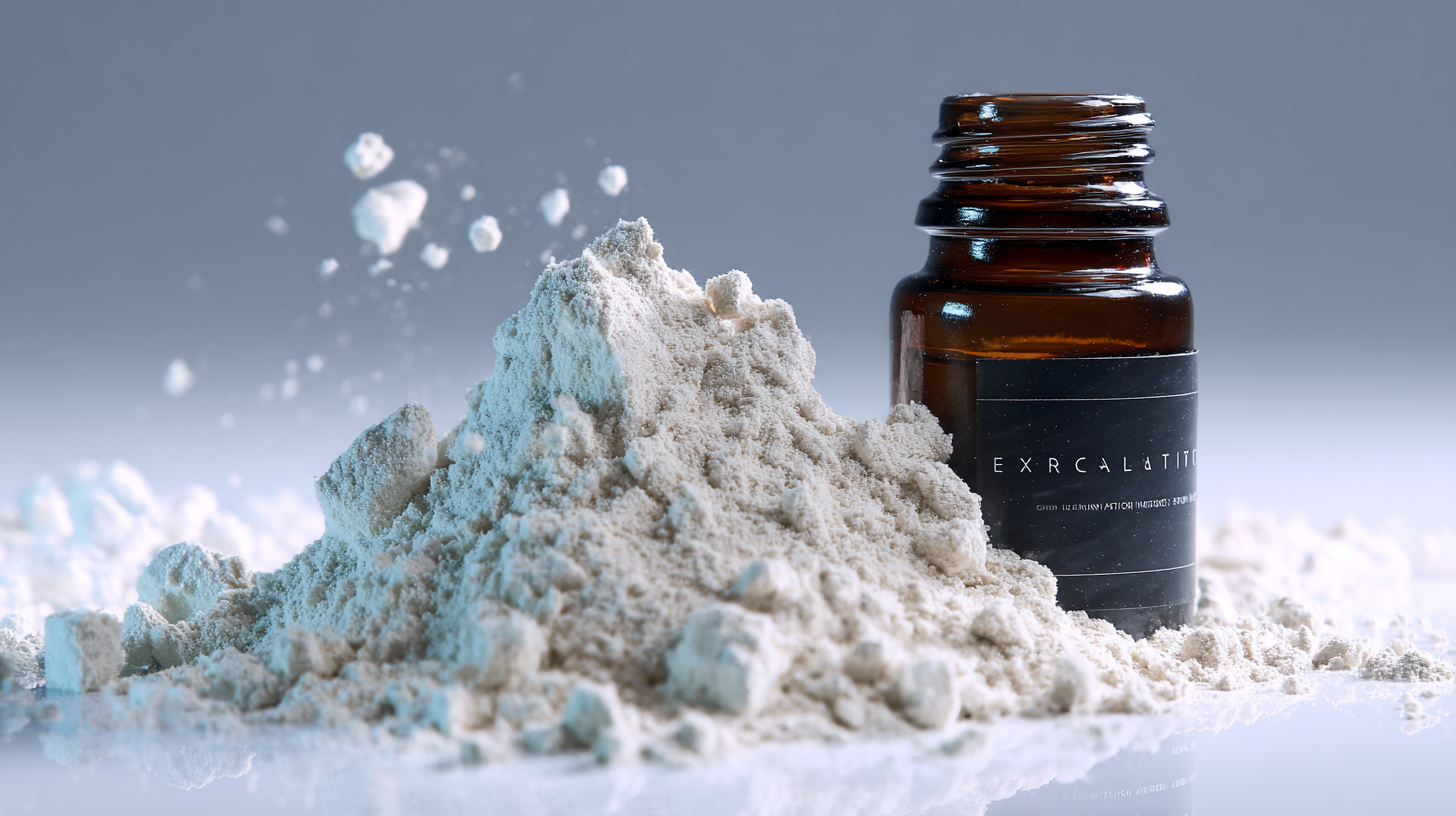50% Response rate
Unlocking Quality: 7 Industry Standards That Define the Best Extract Powder
In the ever-evolving world of health and wellness, the demand for high-quality Extract Powder has surged, catering to a diverse range of industries from food and beverage to cosmetics and pharmaceuticals. As consumers become increasingly discerning about the products they choose, understanding the industry standards that define excellence in Extract Powder becomes paramount.
This blog delves into seven critical standards that serve as a benchmark for quality, safety, and efficacy in extract production. By exploring these standards, businesses can not only enhance their products but also build trust with consumers who seek transparency and reliability.
 Join us on this journey to unlock the potential of Extract Powder by adhering to these essential guidelines that form the foundation of quality in the industry.
Join us on this journey to unlock the potential of Extract Powder by adhering to these essential guidelines that form the foundation of quality in the industry.
Identifying Key Industry Standards for Extract Powder Quality
 When it comes to extract powders, quality is paramount. The industry has established several key standards to ensure that these products meet consumer expectations and regulatory requirements. One of the most critical benchmarks is the purity level of the extract; it is essential that the powder is free from contaminants and meets the specified concentration of active ingredients. This guarantees that consumers receive the intended health benefits and optimal potency.
When it comes to extract powders, quality is paramount. The industry has established several key standards to ensure that these products meet consumer expectations and regulatory requirements. One of the most critical benchmarks is the purity level of the extract; it is essential that the powder is free from contaminants and meets the specified concentration of active ingredients. This guarantees that consumers receive the intended health benefits and optimal potency.
Another important industry standard is the consistency in the extraction process. This involves a standardized methodology for sourcing, processing, and packaging the raw materials. By adhering to these protocols, manufacturers can ensure that each batch of extract powder delivers reliable results. Furthermore, transparency in labeling and third-party testing has become vital, allowing consumers to make informed choices about the extracts they use. With these industry standards in place, the extract powder market can continue to thrive, providing high-quality products that enhance the overall wellness of users.
Essential Characteristics of a Trustworthy Extract Powder Manufacturer
When it comes to sourcing high-quality extract powders, understanding the essential characteristics of a trustworthy manufacturer is paramount. According to a report by the Natural Products Association, more than 70% of consumers are conscious about the source and quality of dietary supplements they purchase. A reputable manufacturer will have transparent sourcing processes, often providing certificates of analysis (COAs) that confirm the purity and potency of their products. This level of transparency ensures that the extract powders meet industry standards and consumer expectations.
Tip: Always request third-party testing results when evaluating an extract powder supplier. This practice not only validates the product but also demonstrates the manufacturer’s commitment to quality.
Moreover, a trustworthy extract powder manufacturer should adhere to Good Manufacturing Practices (GMP), which are crucial for ensuring product safety and consistency. A study published in the Journal of Food Science highlighted that companies following GMP protocols have 30% fewer quality issues than those that do not. A focus on sustainable sourcing and ethical practices is also indicative of a manufacturer that prioritizes quality, as consumers increasingly demand environmentally responsible products.
Tip: Look for manufacturers that are certified by relevant industry bodies, as this certification can be a testament to their commitment to quality and ethical sourcing.
Unlocking Quality: 7 Industry Standards That Define the Best Extract Powder
| Characteristic | Standard Description | Importance |
|---|---|---|
| Purity | Contains no unwanted substances or adulterants. | Ensures safety and efficacy of the extract. |
| Bioavailability | The degree and rate at which the active ingredient is absorbed into the bloodstream. | Enhances effectiveness of the extract for health benefits. |
| Sourcing | Extraction of raw materials from sustainable and ethical sources. | Supports environmental and social responsibility. |
| Testing | Rigorous testing for potency, contaminants, and consistency. | Confirms quality and reliability of the extract. |
| Regulatory Compliance | Adherence to local and international safety standards. | Ensures consumer safety and company credibility. |
| Transparency | Openness about sourcing, processing, and testing methods. | Builds trust with consumers and stakeholders. |
| Customer Feedback | Real consumer reviews and ratings on product effectiveness. | Provides insight into product performance and user satisfaction. |
Evaluating Certifications and Compliance for Quality Assurance
In today's highly regulated market, evaluating certifications and compliance is crucial for ensuring quality assurance in extract powders. The presence of recognized certifications underscores a manufacturer’s commitment to quality, safety, and environmental stewardship. These certifications serve as a benchmark, guiding consumers in distinguishing between substandard products and those that meet rigorous industry standards. For instance, certifications from respected organizations validate that a product adheres to specific safety and quality protocols, making them indispensable for both producers and consumers looking for reassurance.

Moreover, compliance with quality control measures mitigates risks associated with outsourcing and production discrepancies. As industries face increasingly complex regulatory landscapes, organizations are compelled to maintain transparency and accountability in their processes. This not only helps in safeguarding consumer interests but also enhances operational efficiency. Companies that actively pursue and sustain required certifications demonstrate a proactive approach to governance, risk management, and compliance, ultimately positioning themselves as leaders in their field. In this context, understanding the nuances of certifications becomes vital for achieving quality assurance in extract powders and beyond.
Understanding Sourcing and Production Processes for Extract Powders
When it comes to the production of extract powders, understanding the sourcing and processing methods is essential for ensuring quality. The journey begins with the careful selection of raw materials. High-quality plants or herbs must be sourced from reputable suppliers who adhere to organic farming practices. This ensures that no harmful pesticides or chemicals are introduced into the extract. The geographical location from which these materials are sourced can also significantly affect the potency and overall quality of the extract powder.
Following sourcing, the extraction process plays a vital role in defining the final product. Common methods include solvent extraction, cold pressing, and steam distillation, each with its unique advantages and potential drawbacks. The chosen method must align with the desired characteristics of the extract, such as flavor profile and bioavailability of nutrients. Furthermore, maintaining controlled environments during extraction is crucial to preserve the integrity and efficacy of the active compounds. As consumers become more aware of these processes, transparency in sourcing and production becomes a key factor in determining the trustworthiness and quality of extract powders in the market.
Quality Standards for Extract Powders
This chart represents the key quality standards that define the best extract powders in the industry. The data highlights the importance of sourcing, production processes, and quality control measures.
Consumer Safety: Importance of Testing and Transparency in Manufacturing
In the realm of extract powder manufacturing, consumer safety is paramount. The importance of stringent testing cannot be overstated, as studies show that approximately 42% of dietary supplements are misrepresented concerning their purity and potency. To ensure product quality, numerous industry standards exist that mandate transparency during production. For instance, the U.S. Pharmacopeia (USP) sets rigorous guidelines for dietary ingredients, significantly enhancing product safety and reliability.
Moreover, transparency in manufacturing processes allows consumers to make informed choices. A survey conducted by the Council for Responsible Nutrition revealed that 83% of consumers would prefer brands that provide clear information about their sourcing and testing procedures. Companies adhering to best practices are more likely to invest in third-party testing, which can identify contaminants and validate product claims, further safeguarding consumer health. By prioritizing transparency and thorough testing, the extract powder industry can foster trust and ensure that consumers receive high-quality products that meet established safety standards.